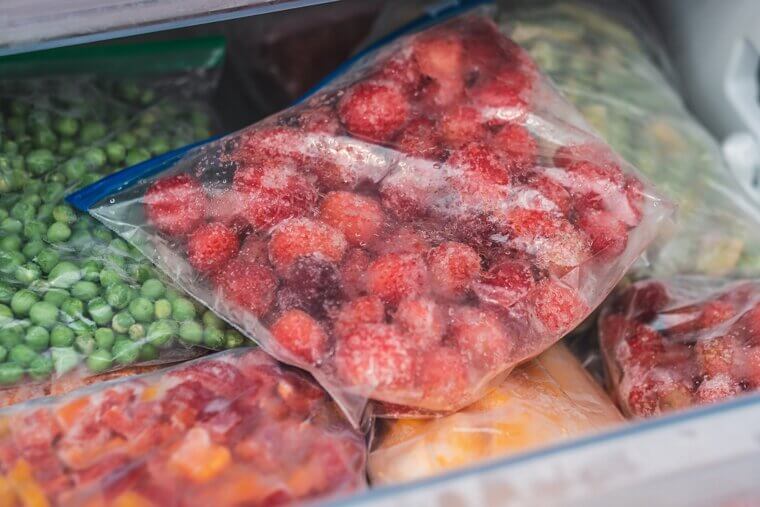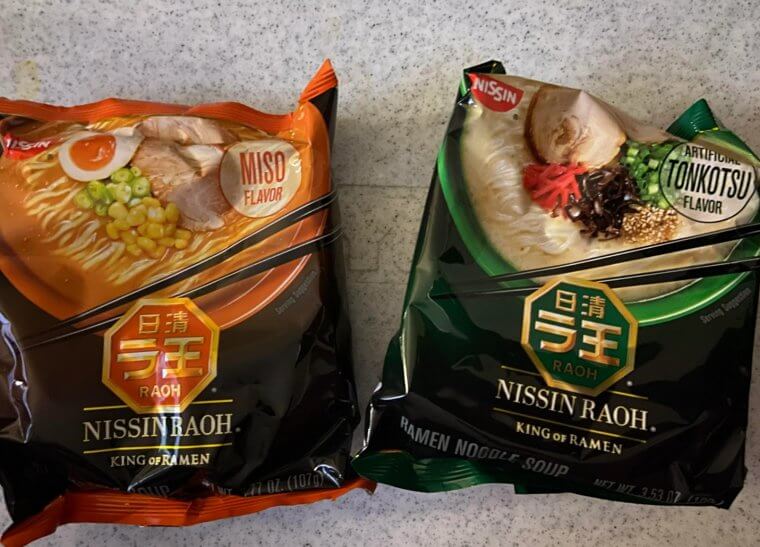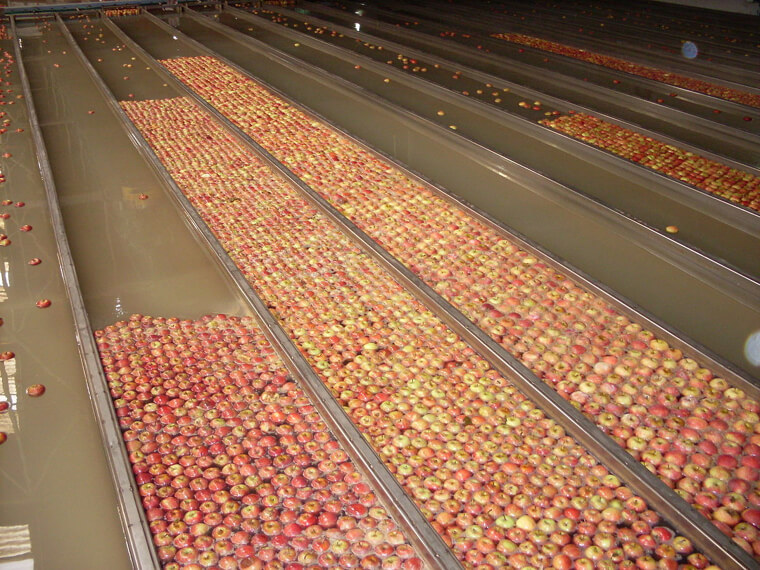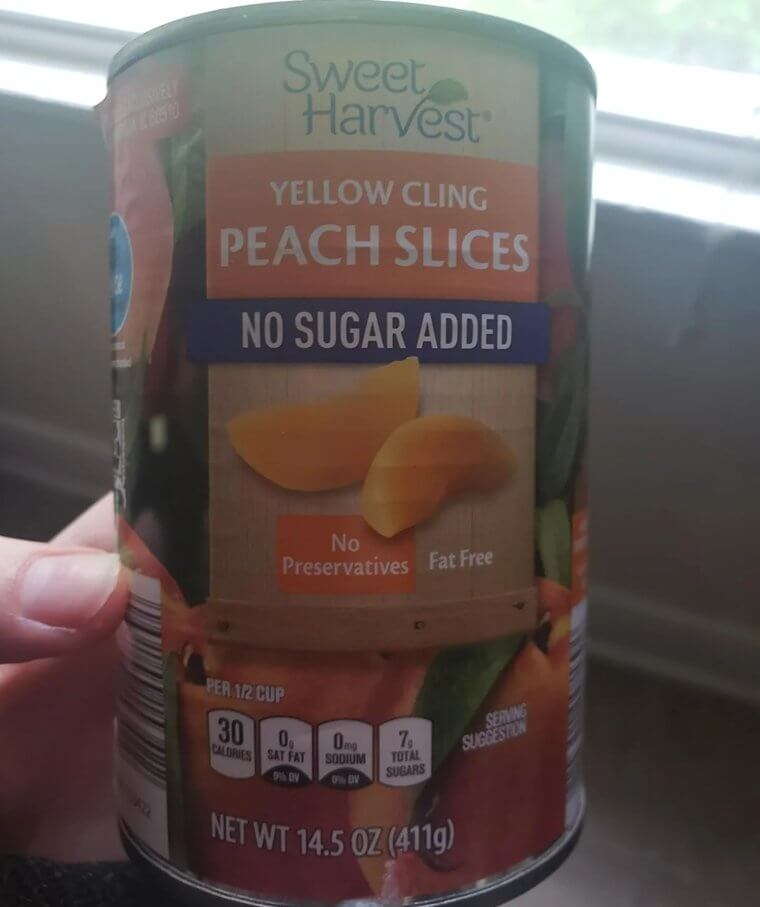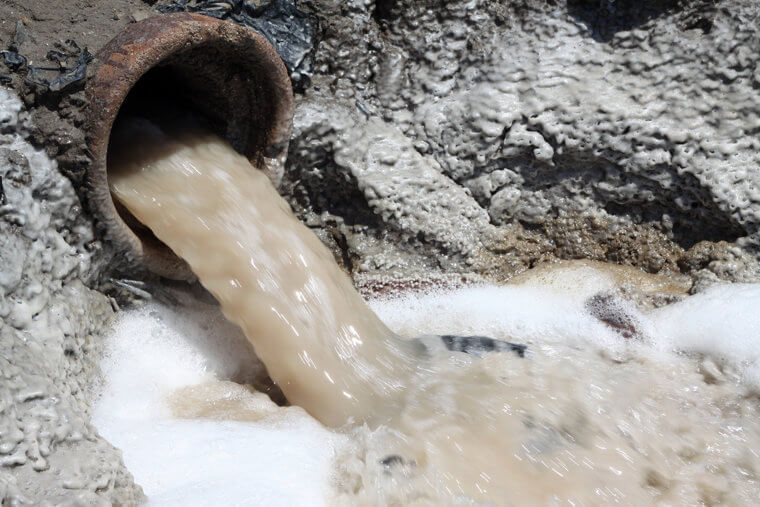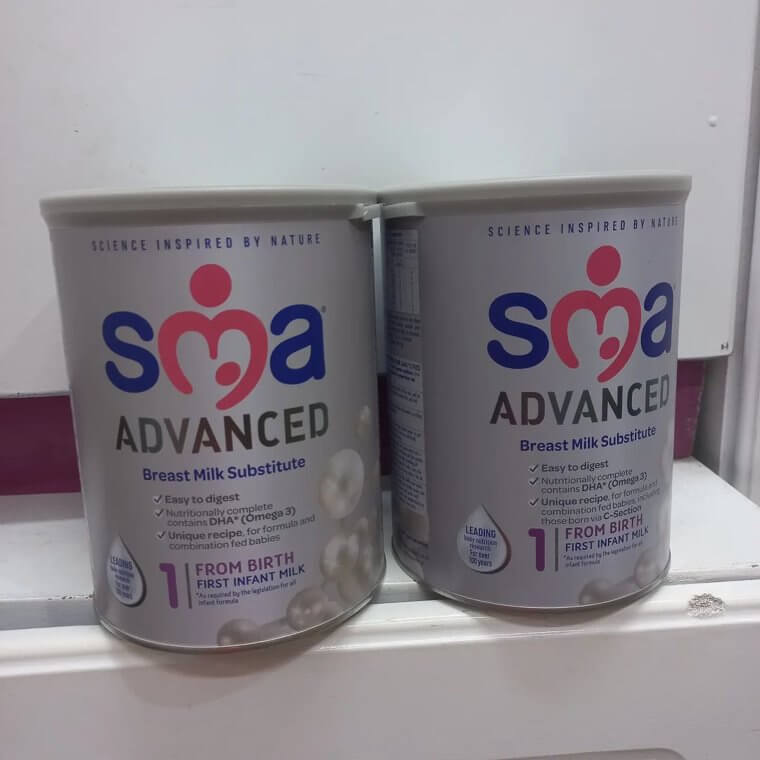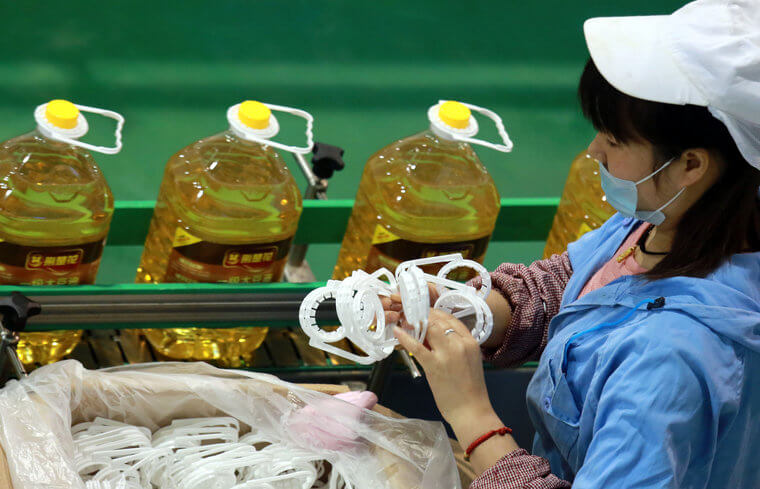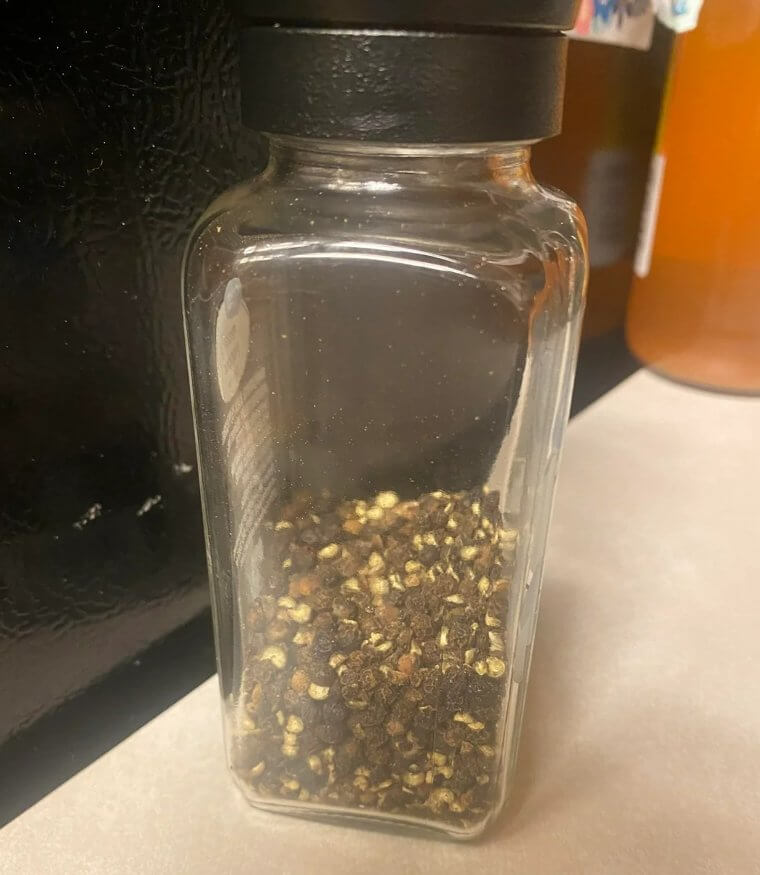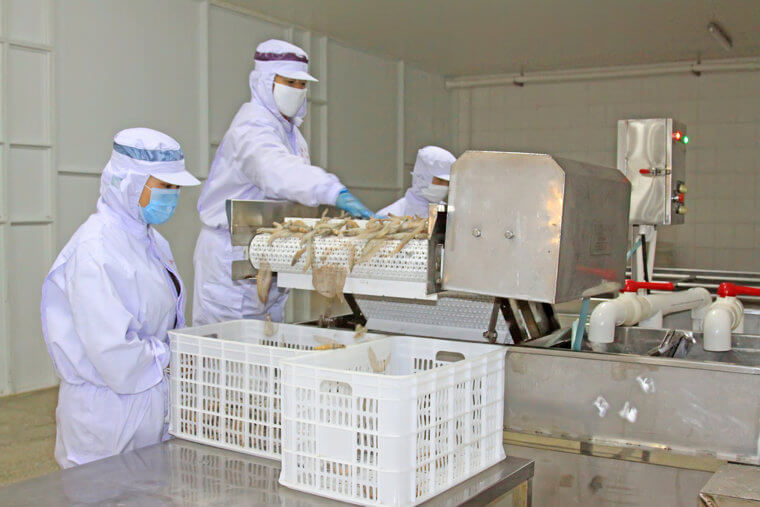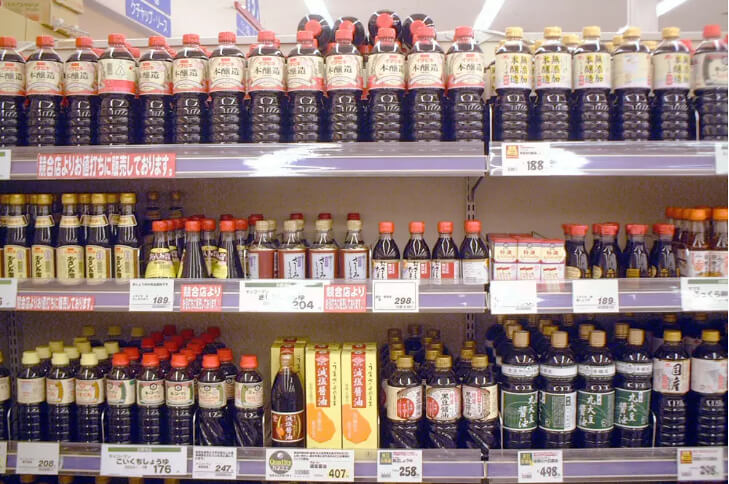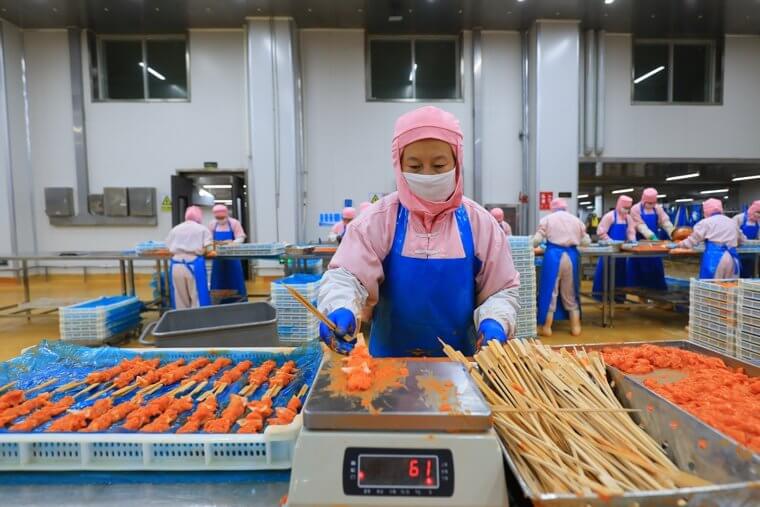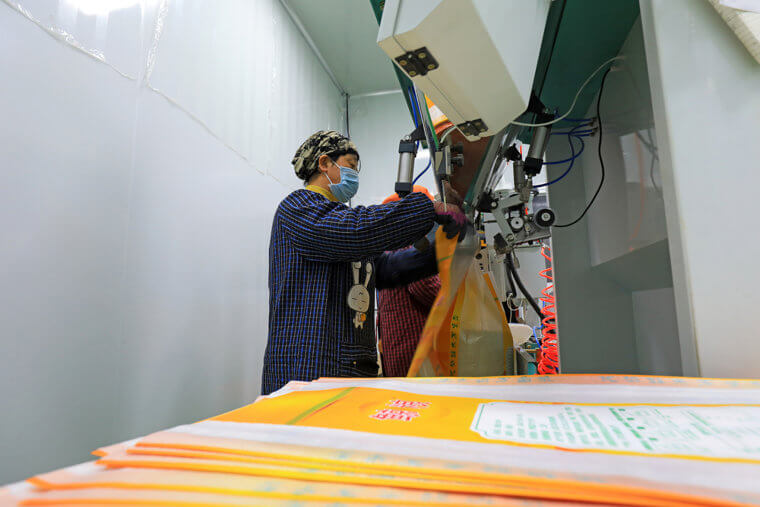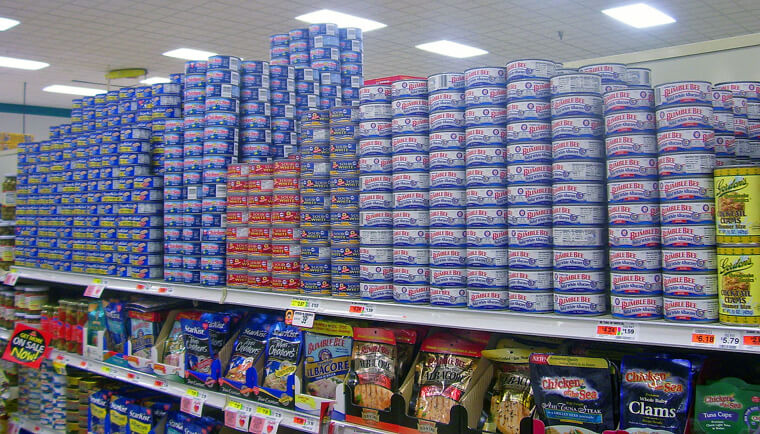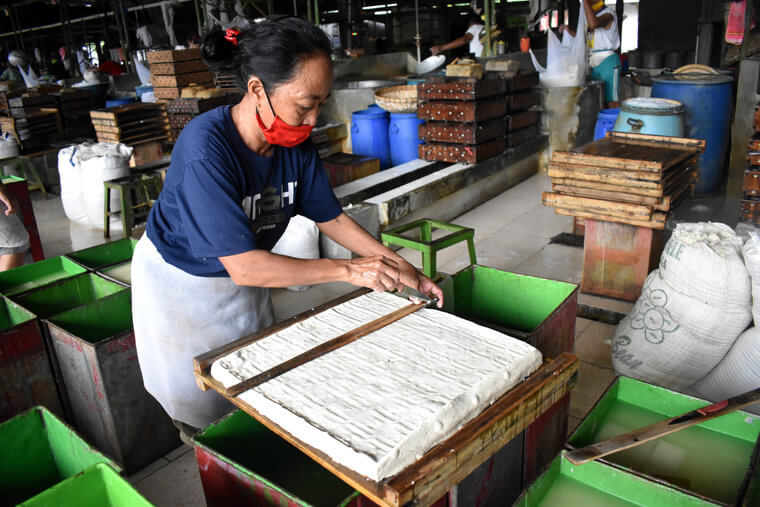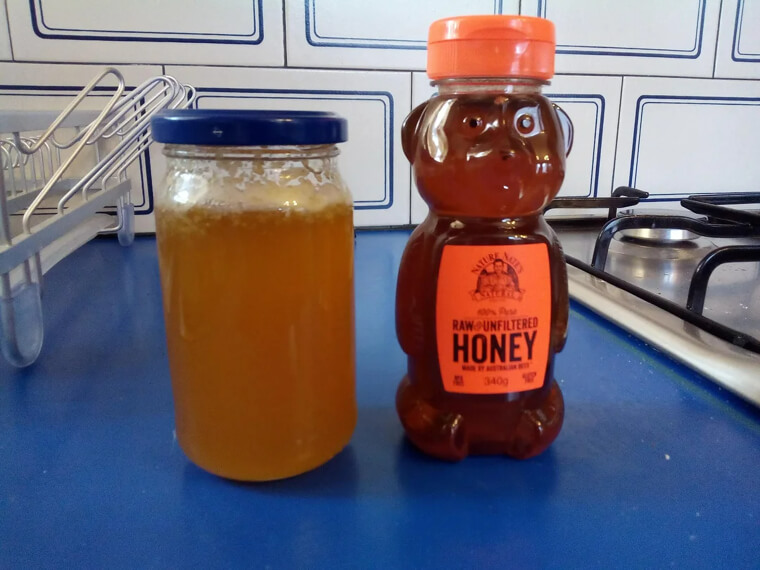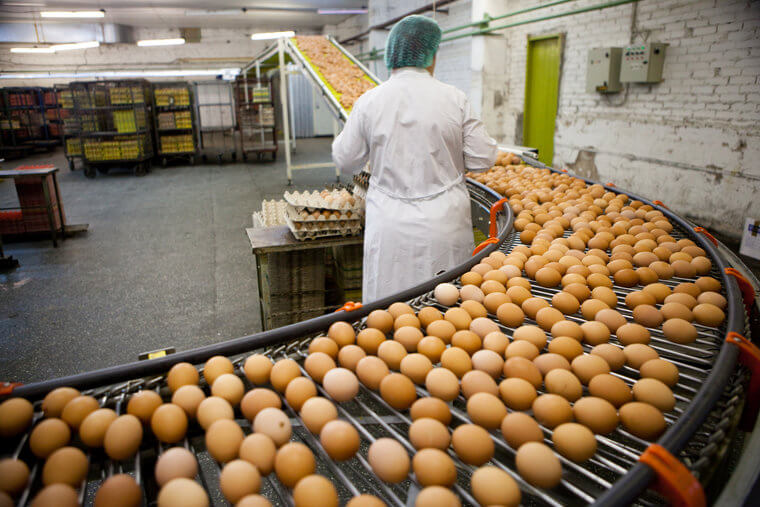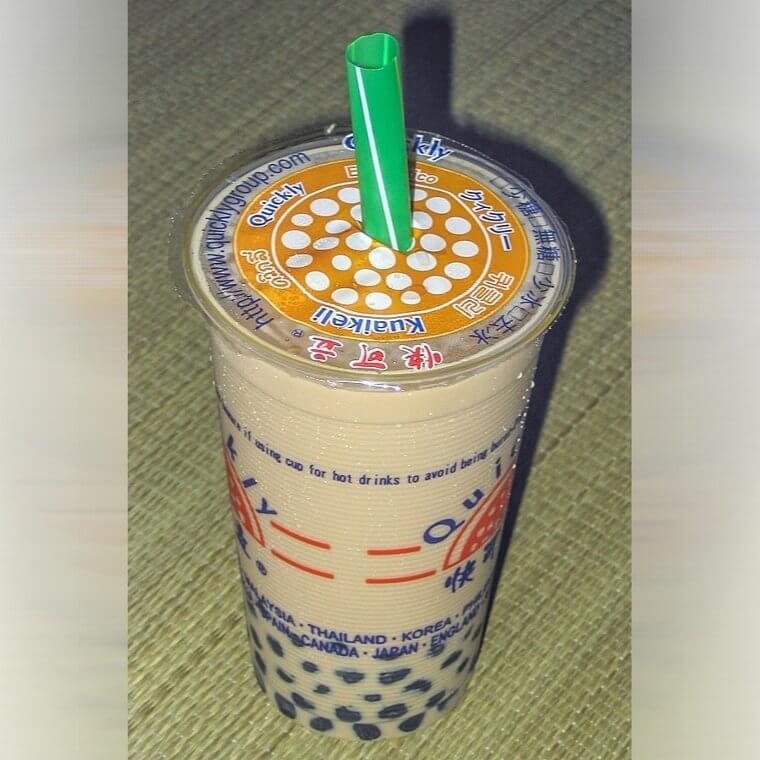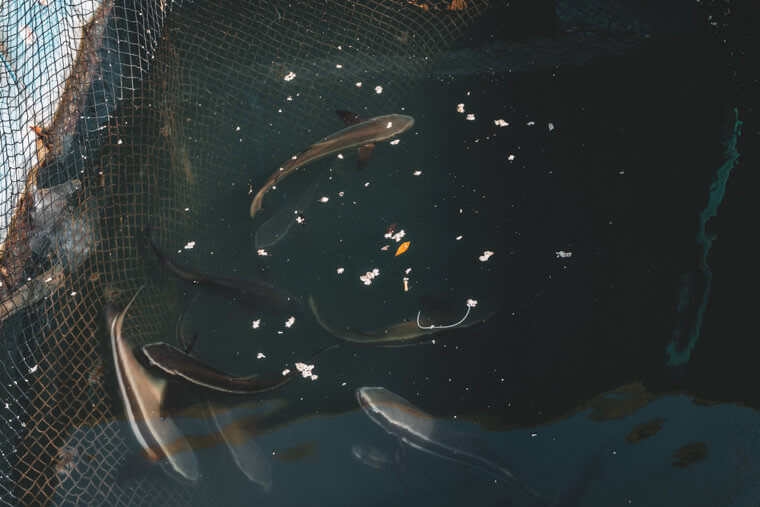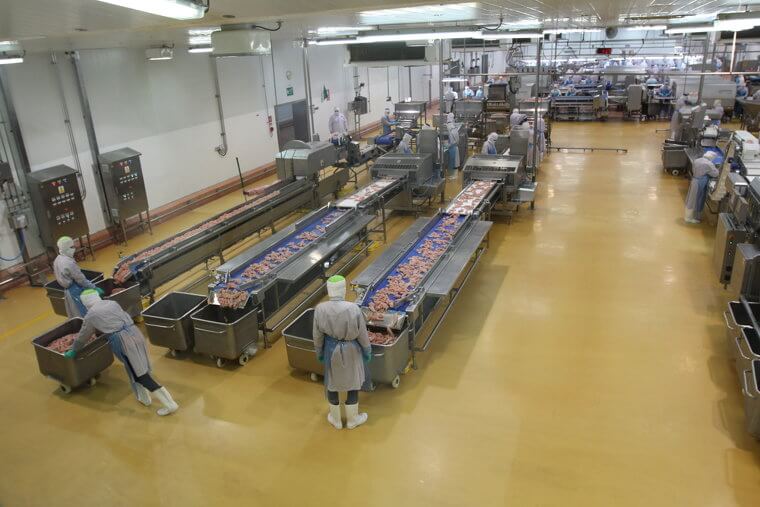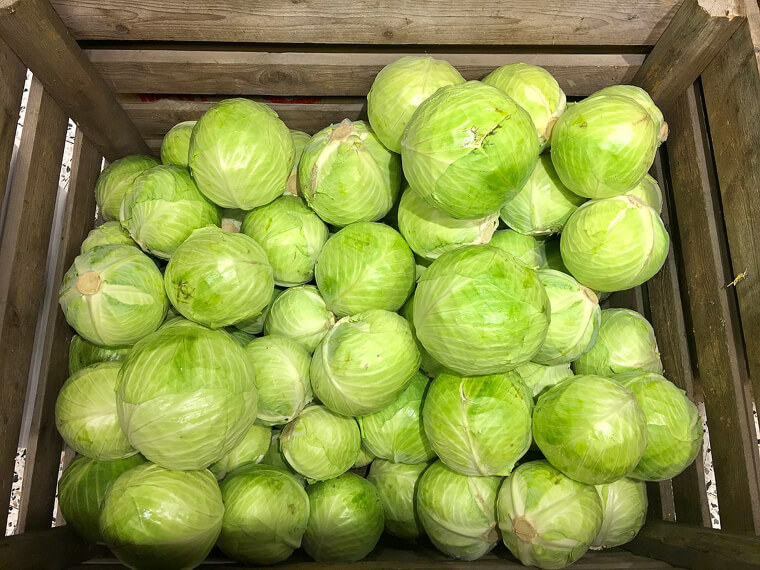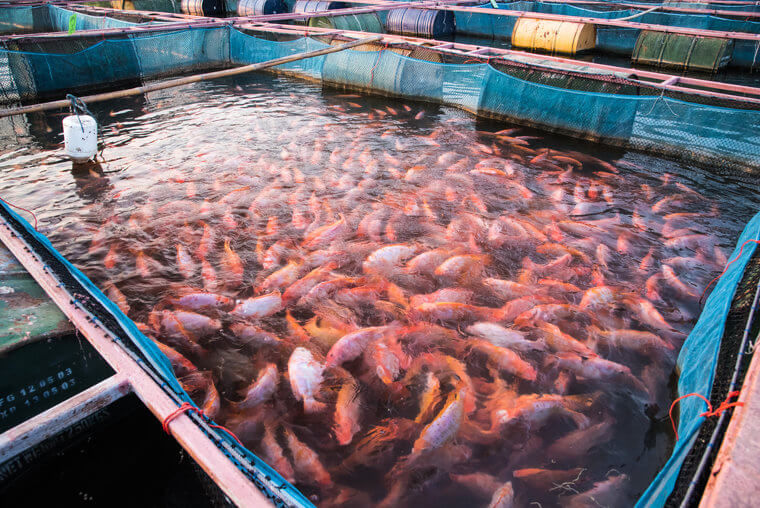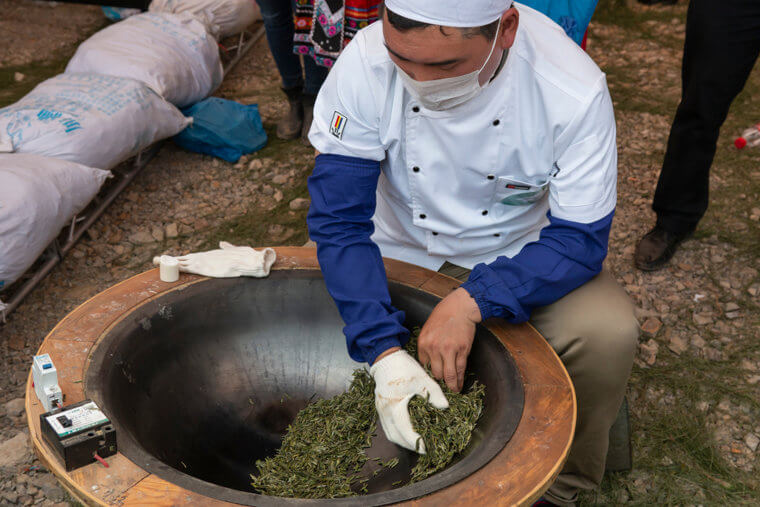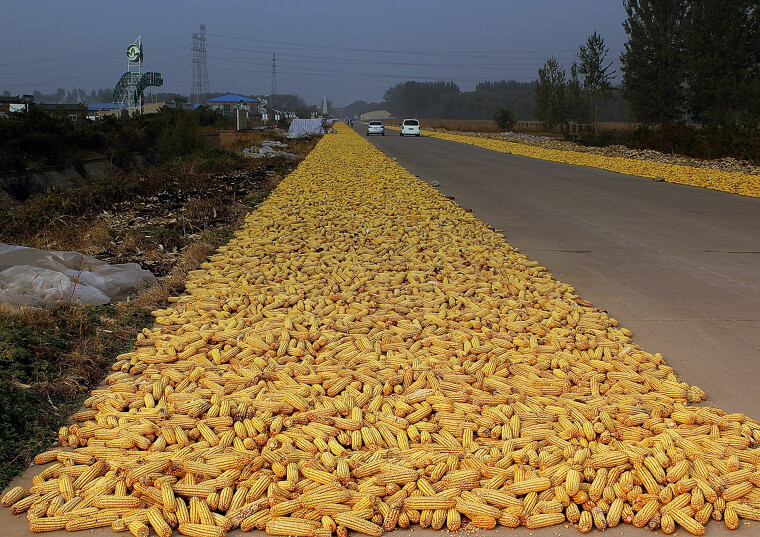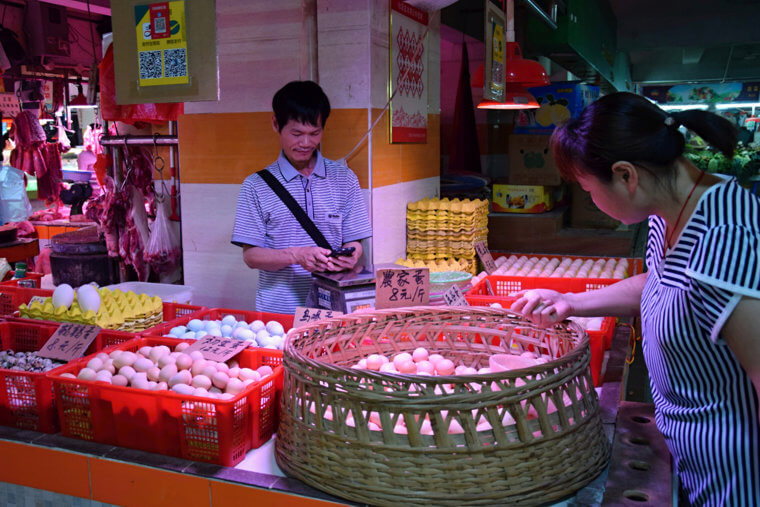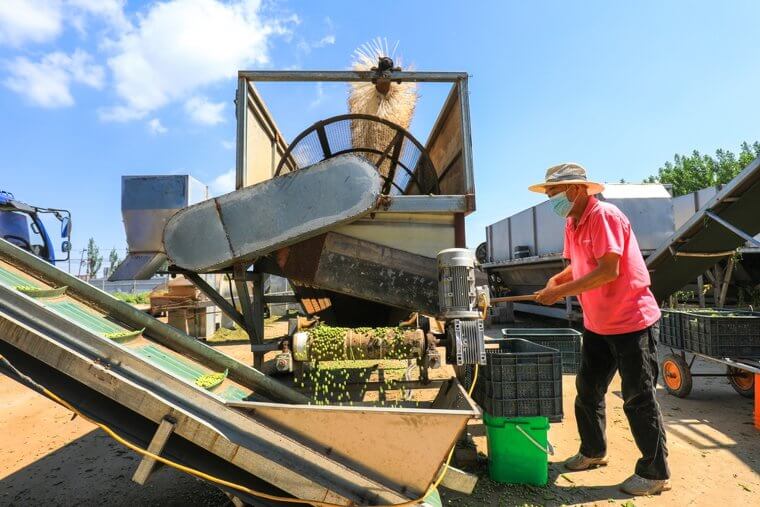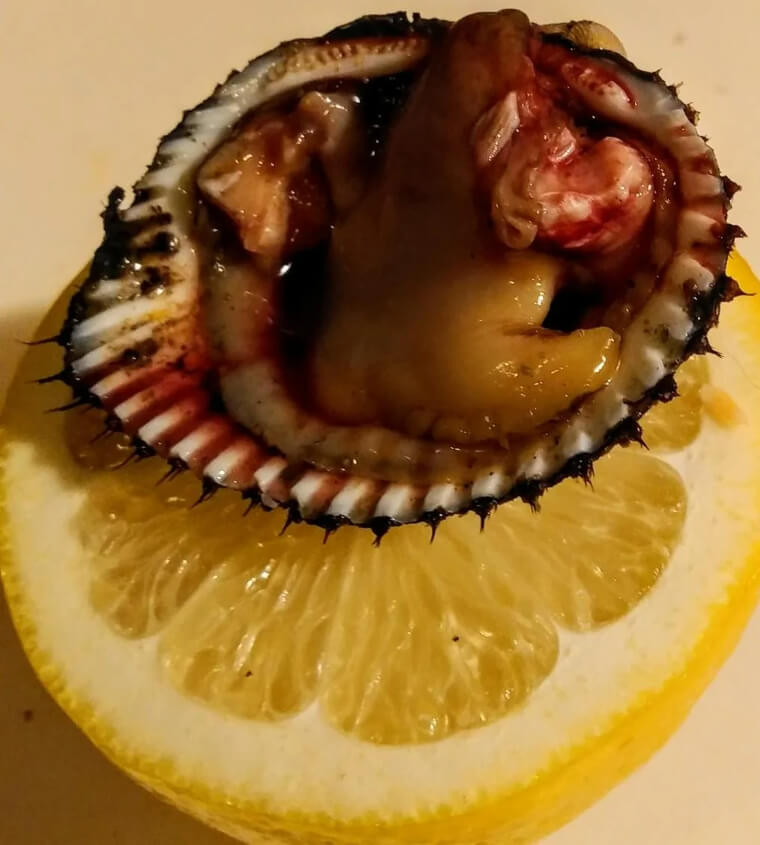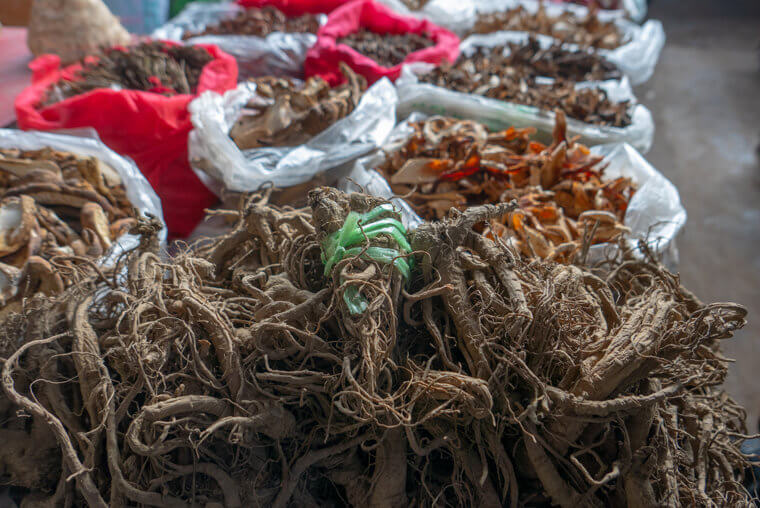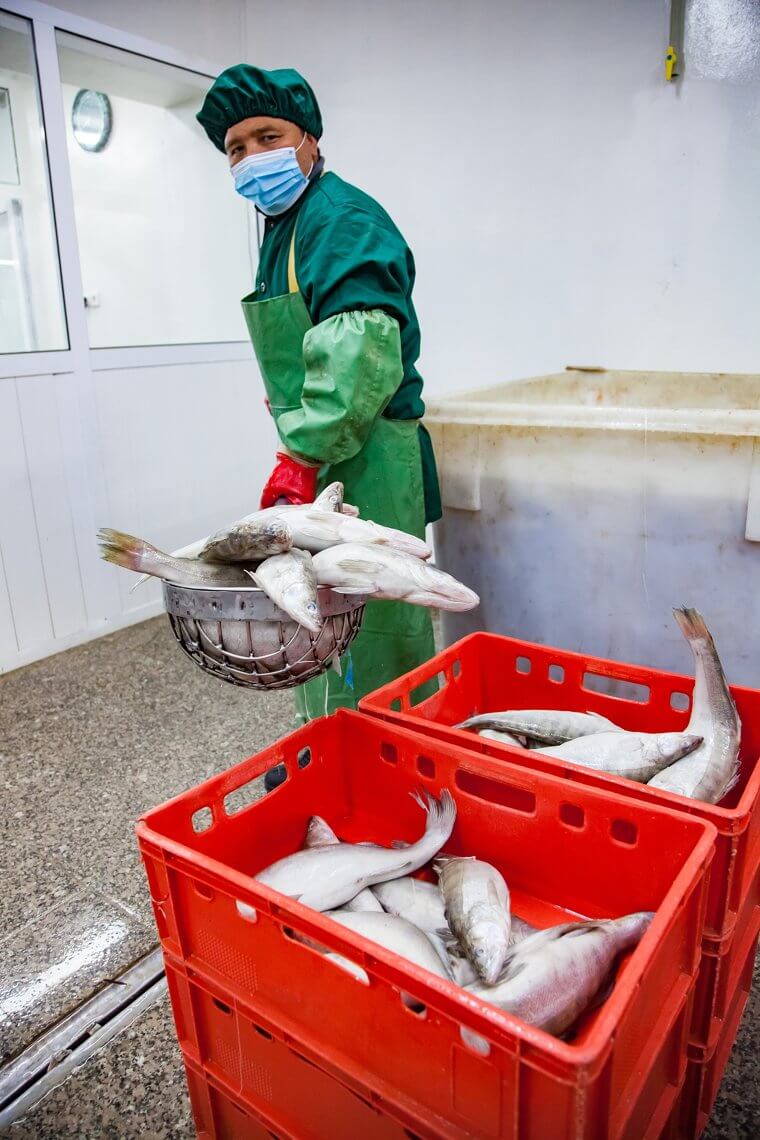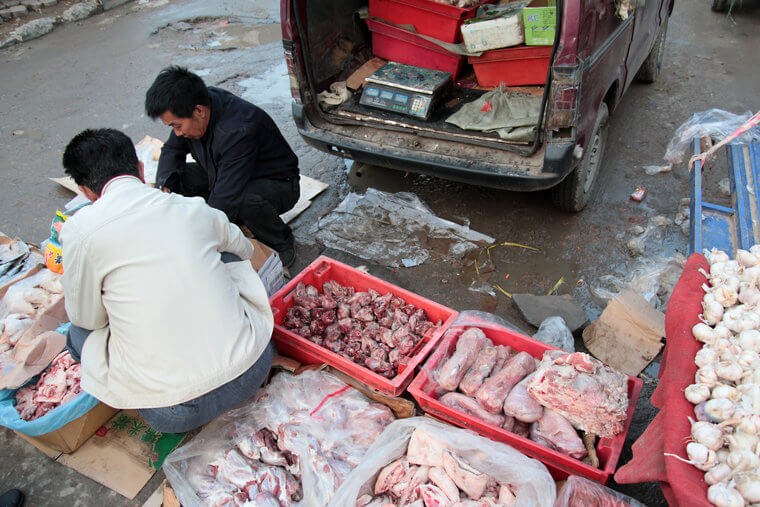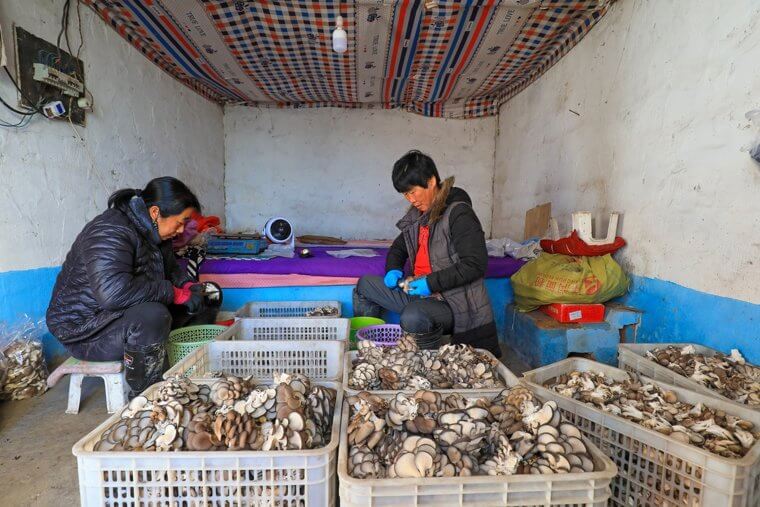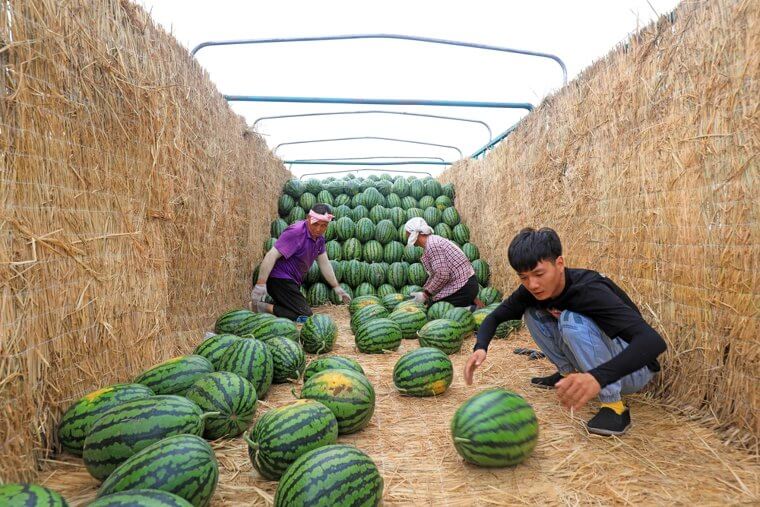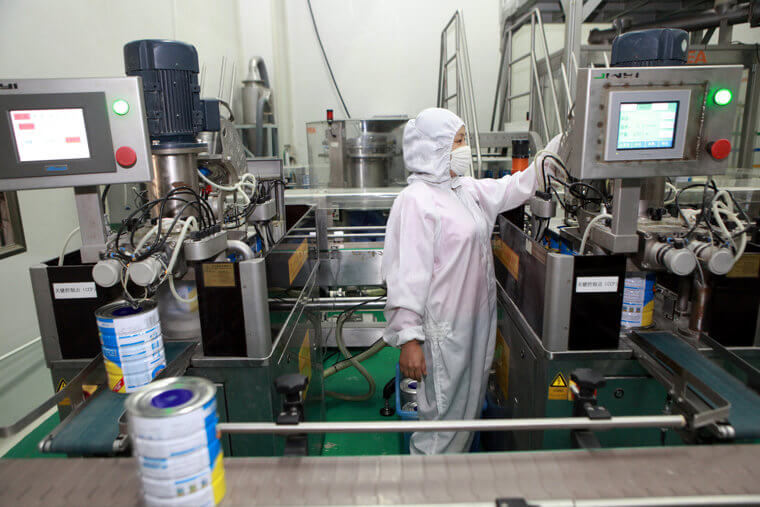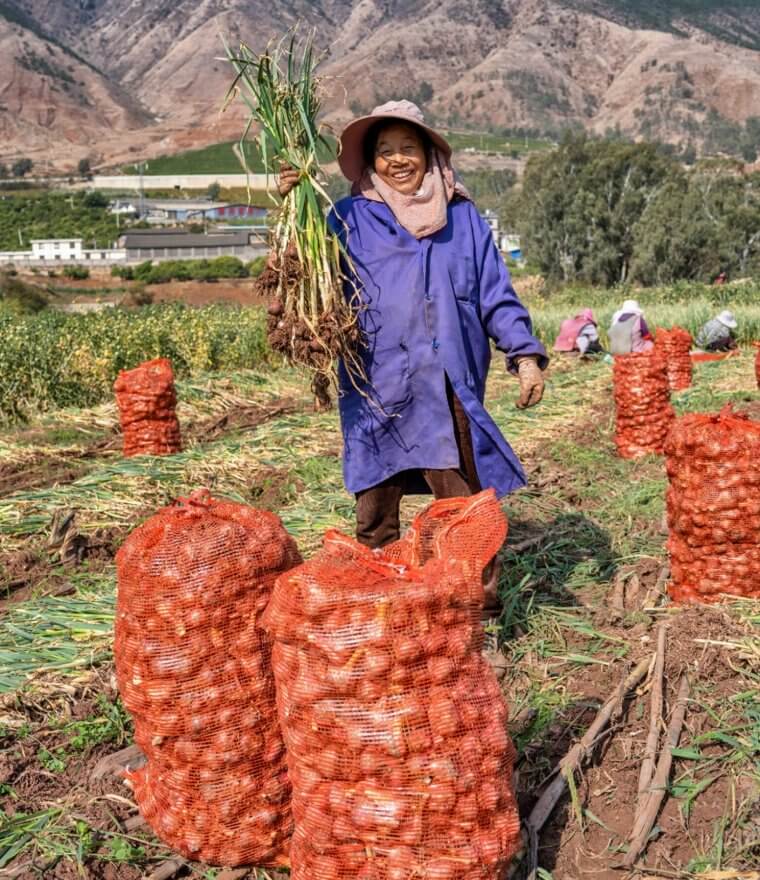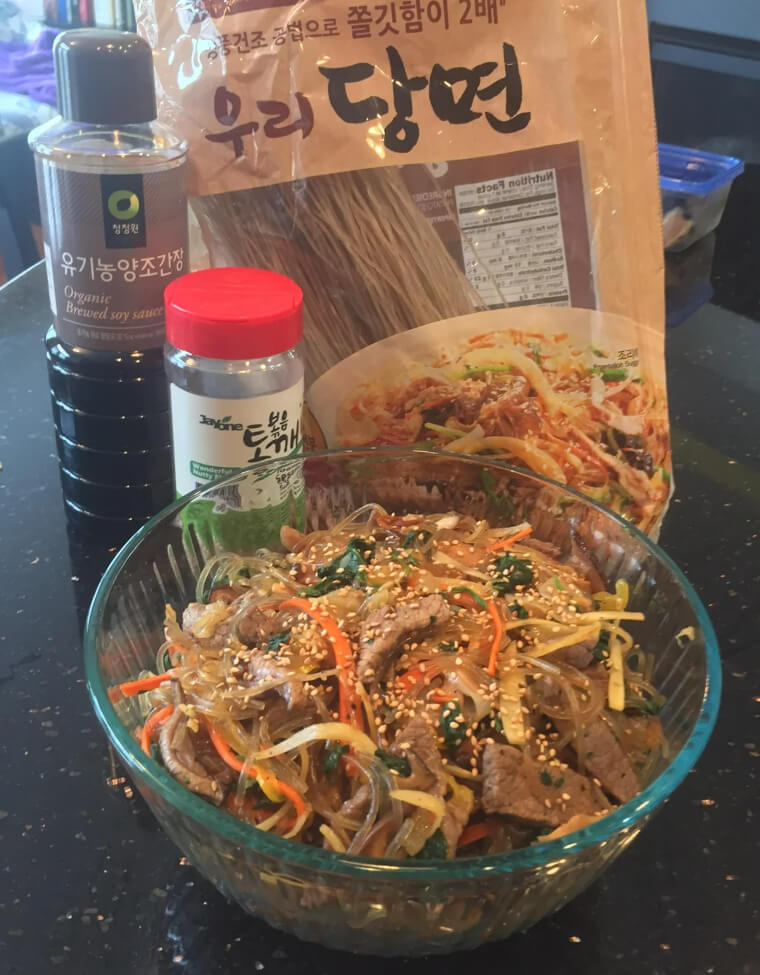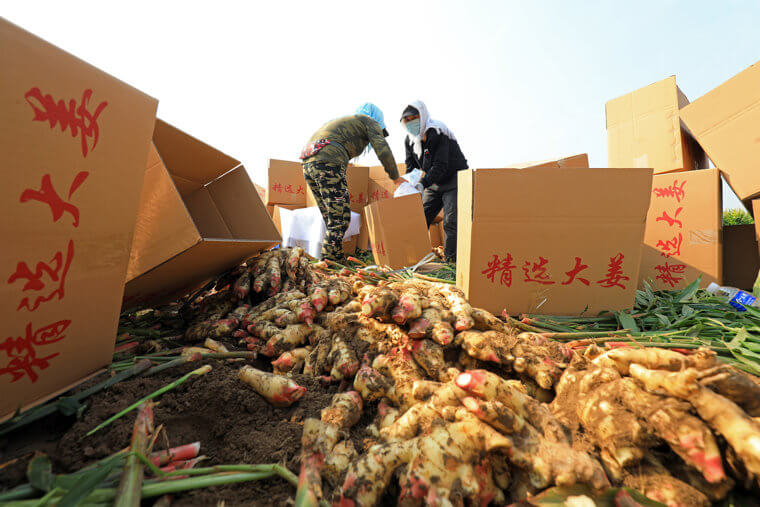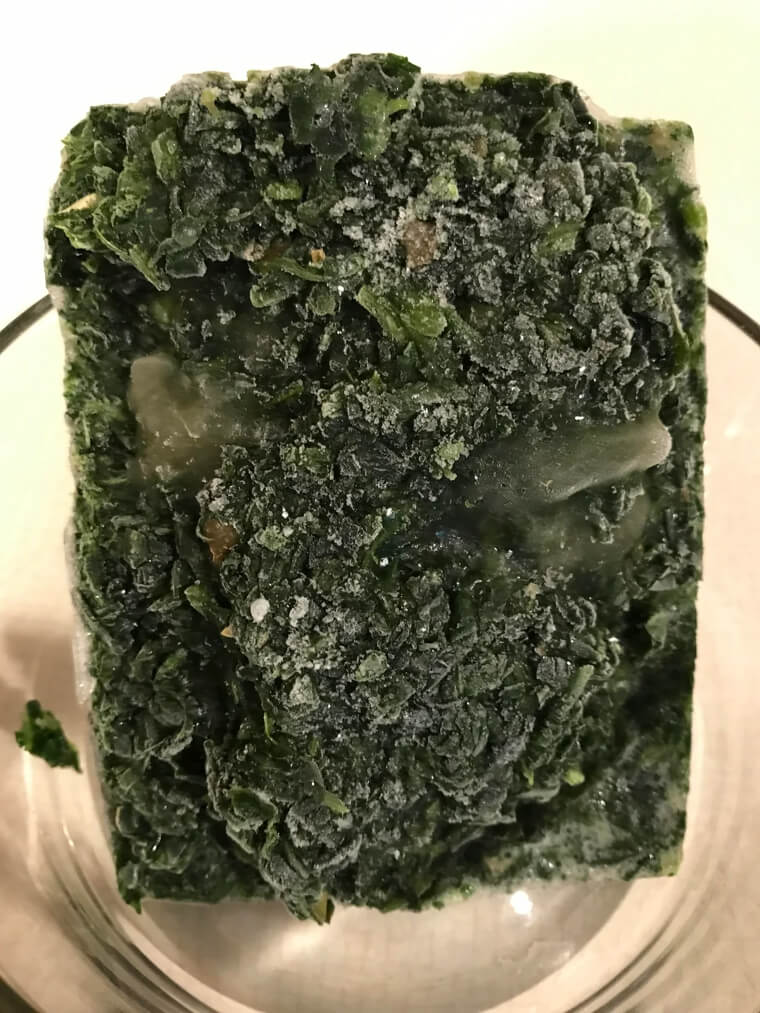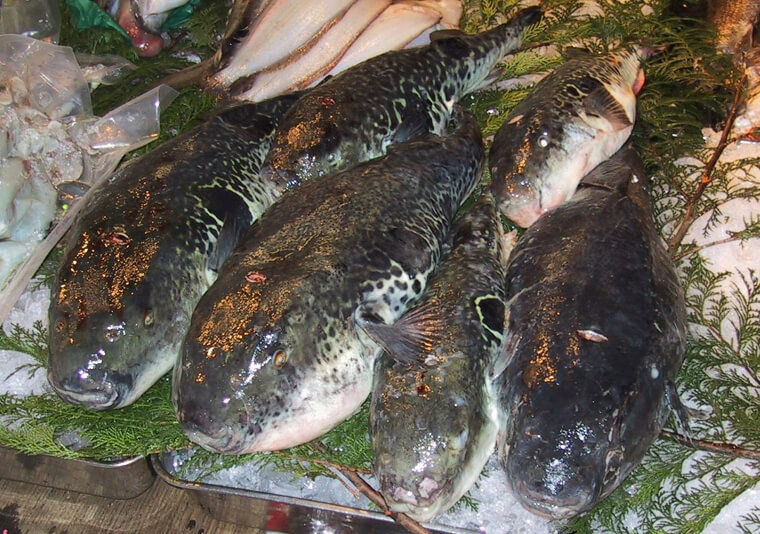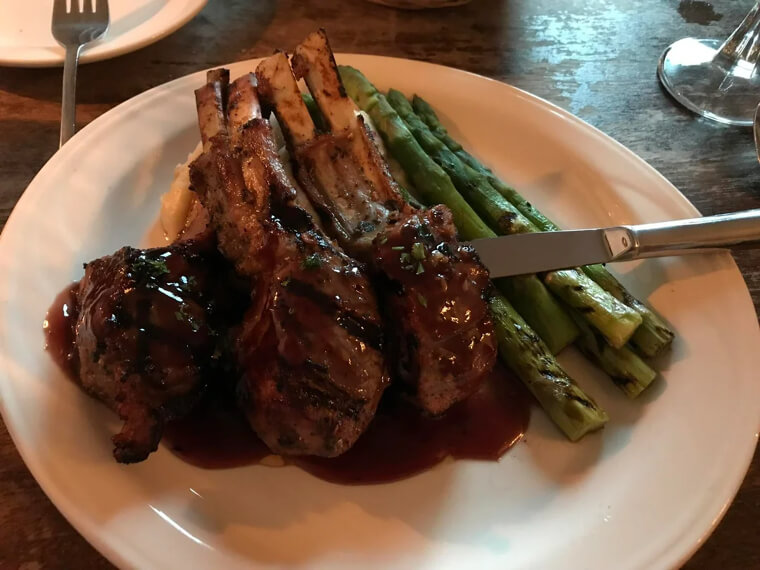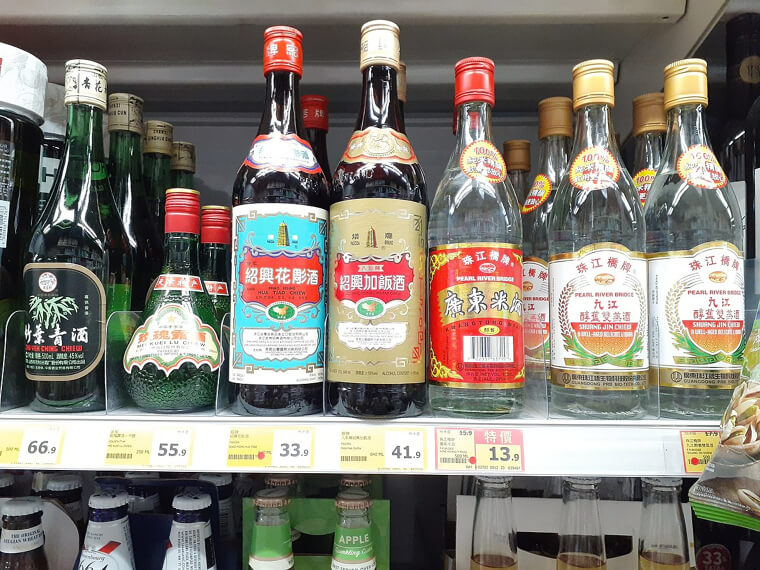What’s Really in These Popular Foods From China?
Not all food is created equal, and sometimes the quality depends a lot on where the food comes from since different countries have varying standards when it comes to production. So if you don't want to consume potentially harmful items, take a look at this list of common grocery store products brought from China. While some are produced healthily and safely, many are not - here's what to buy and what to avoid.
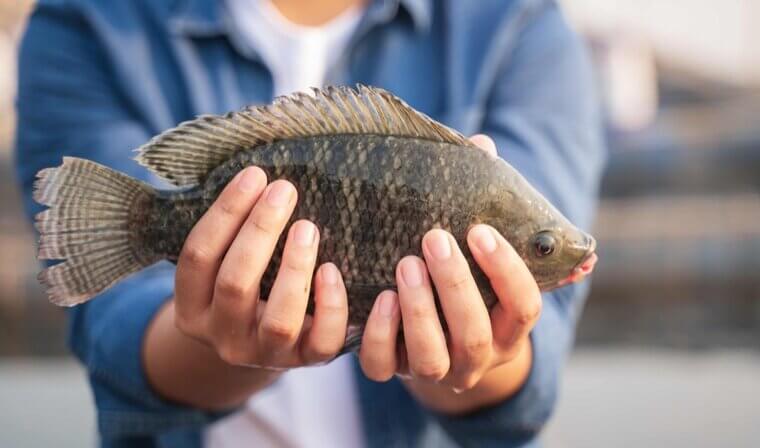
Frozen Fruits Are Not as Safe
You may be surprised to find out that most of the frozen fruit that is available for sale in the US is actually sourced and produced in China. As has already been made pretty clear, produce from China is not always the healthiest option as they tend to use an excessive amount of pesticides and additives that are not safe for human consumption. So double-check your label next time you buy frozen fruit.
Most people are happy to buy frozen fruit from China as the price is much less, but is it worth it in the end?
Rice Noodles With Sulfur Dioxide
Who doesn't love nice rice noodles to make delicious Asian dishes at home? If you love to cook, you probably have quite a few containers of these noodles already in your home. And if that is the case, maybe you should check to see where the noodles were made before cooking your next dish. Many of the noodles produced in China contain sulfur dioxide, which has been connected to causing cancer.
Rice noodles made in countries outside of China usually do not have these harmful chemicals laden within them. So double-check your rice noodles before using them next time!
Imported Apple Juice May Contain Arsenic
Have you ever considered that perhaps your food contains some harmful chemicals? Of course, the idea has crossed your mind from time to time, especially when you consider all of the accidental additives that are in your food. However, apple juice from China may have an extra dangerous chemical of arsenic. How does arsenic get into apple juice, you might ask? It is an ingredient in the chemicals that are in the pesticides used on the apples.
China is increasing its export of agricultural products substantially over the years. However, it is taking the world some time to realize how risky some of the products are for your health.
Cans of Peaches With a Lead Lining
Although you may have always been told to look for the silver lining in life, you avoid it when that lining is actually lead. Canned peaches are a delicious and sweet treat that most people already know is not that healthy for you. However, if you purchase canned peaches from China, you are choosing to even less healthy option, as the cans are often lined with a lead that leaks into the peaches themselves.
So only if you are looking for a little lead poisoning in your life should you consider buying canned peaches from China. Otherwise, avoid them at all costs.
Table Salt Laden With Heavy Metals
It is no secret that table salt is not particularly healthy for you in general. Many people are switching to sea salt or Himalayan pink salt for their daily salt consumption instead of traditional table salt. However, if you want to stick with table salt, be extra wary of the table salt from China, as it can often be laden with heavy metals that are very toxic to humans.
Most of the table salt is not legal for human consumption and is more used for industrial purposes due to the risk involved. However, sometimes it is still sold for consumption, so be extra careful of salt made in China.
Imported Baby Formula May Contain Melamine
Baby formula is perhaps one of the most regulated and watched foods on the market. Many people don't seem to care quite as much about what they are consuming and the potential harm it causes, but when it comes to their baby's food, they want to find something that is as healthy as possible. That's why you will probably want to be extra cautious when it comes to a baby formula that comes from China, as it has been found sometimes to contain melamine.
Melamine is a chemical that is used to produce plastics. Plastics are never the best for consumption and much less so for growing and developing children.
Oil Is Often Just Recycled Oil
Although you might think that all recycling is good recycling, that is not necessarily the case. It could, in theory, be a good thing to reuse oil from restaurants so that it does not all go to waste. However, it shouldn't be sold as if it is new oil. There were many Chinese oil companies that were selling recycled oil as new oil due to the lack of government regulations.
Not only is that unhealthy for a whole variety of reasons, but it is also actually dangerous. What if people had food allergies and they didn't know that the oil was contaminated?
Is It Black Pepper or Is It Mud?
Although you can certainly find black pepper sources from China that are among the highest quality in the world, you should be warned that they are not all made equally. Some sellers from China will disguise mud pellets as black pepper and sell them to the world. Black pepper is a big part of Asian cuisines and spice mixtures, however, so you can definitely find good sources for it if you look in the right places.
Black pepper is one of those things that you can definitely risk getting from China, especially if you make sure that it is from a good source. But don't buy just any black pepper - do some research!
Shrimp That Are Contaminated With Carcinogens
The word surrounding shrimp that are imported from China is not looking great. Although people have been eating it for years, recently, the Institute of Environmental and Human Health food lab at Texas Tech University decided to test some of the shrimp that was imported to the US. What did they find out? That the shrimp imported from China contained a whole list of carcinogens and substances that are illegal in the US.
Although the shrimp that is brought in from China is usually less expensive, it may not always be worth the risk to your health to consume it.
Soy Sauce From China May Contain 4-Methylimidazole
Do you like to eat toxic chemicals with your meals? The answer to that is probably no, and yet oftentimes, you will be doing it accidentally. You may think that buying soy sauce from China is a safe bet, considering the fact that it is commonly used in the East, but that is not the case. Over 25% of the soy sauces that come out of China contain 4-Methylimidazole, which is a cancer-causing chemical.
Although soy sauce is quite tasty, it is probably not worth the cancer risk when you are just trying to make a casual dish for dinner. Try buying your soy sauce from a different location.
Be Wary of Beef That Is Actually Pork
Although this is not the case in many countries, in China, pork is the most commonly consumed meat (well above beef), mainly due to the fact that it is so much cheaper than beef. It can even be more than half the price at times. As a result, many sellers of pork have tried to make their pork look like beef so that they could make a profit. And to do this, they added borax to the pork.
Not only is this dangerous, but they are actively lying to their consumers and making them think that they are eating one type of meat when it is a whole other one.
Rice That Includes Synthetic Resin
Although you might think that rice is among the safer choices when it comes to Chinese products, mostly due to the fact that rice is such an integral part of the diet of Chinese people, you would be mistaken. Unfortunately, most of the rice in China actually contains resin, which is a chemical that is known to cause cancer and is used in the production of plastics (not food products).
If you want to avoid eating plastic resin when you make a bowl of rice, then you probably want to avoid buying rice that was made and produced in China.
Tuna From a Can May Contain Lead
If you were concerned about eating the canned peaches that came from China, you should be terrified of the canned tuna. They have all the same risks that are involved in the cans of peaches, such as lead leaking into the rest of the product. However, there are also the added concerns of the tuna itself. As you have seen, seafood products, in general, do not come highly ranked if they are imported from China.
So if you eat Chinese canned tuna, you are running the risk of getting lead poisoning and also toxins and contaminants from the tuna itself. It doesn't seem worth it in the end.
Iron Sulfate and Feces in Chinese Tofu
If you thought you would stay on the safe side by avoiding meat made in China and choosing to go the vegetarian route, that might not be the case. From the looks of it, tofu is actually one of the riskier items to consume when it is produced in China, and you wouldn't even be able to guess what is included in the production process. In order to speed up the fermentation needed to make tofu, they often add sulfate and feces.
You would think this would be illegal, but it is actually fairly common in many tofu products that are made in China.
Honey Is Often Diluted With Syrup
If you are a honey lover, then you probably don't want to buy your honey in China. There is much debate and speculation around the fact that Chinese honey probably isn't actually honey at all. Although there may be a bit of honey in the beginning, they usually dilute it with syrup or other additives to make it last much longer and to make more money off of it.
There is no saying what syrups they even add to the "honey" and how dangerous they are, as they all vary.
Eggs Could Have Calcium Carbonate And Paraffin
Although you might think that eggs are usually sourced locally from the places where they are sold, that is not always the case. You might be skeptical to believe that eggs that are sold in the US can actually come from China, but it's possible - check those labels. You should be careful with eggs from China as they may contain calcium carbonate and paraffin which can poison a person if consumed.
It must be crazy to think that eggs travel that far across the world despite how fragile they are and that somehow they manage not to break for the entire journey.
Polychlorinated Biphenyls in Tapioca Pearls
Although you might not even know what polychlorinated biphenyls is, you probably don't like the sound of it being in food products for human consumption. Anything that has that long of a name probably isn't something that you should be eating. However, this cancer-causing ingredient is found in many tapioca pearls that come from China. Does this mean you have to be more careful when you get bubble tea?
Polychlorinated biphenyls can cause issues in the reproductive and immune systems and can even alter and harm bodily functions. In short, it is not something you want to be consuming.
Cod That Are Full of Toxins
Many people love cod. It is an inexpensive and easy thing to plan when you're having a dinner party or meal prepping. However, think twice before buying your cod from China. Although you have to be careful with the seafood products you buy from anywhere, the ones from China are particularly risky. They tend to raise the cod in very subpar conditions, cramped together, and very dirty. And that translates to the fish itself.
The water where the cod are grown is often as dirty as actually being sewage and filled with garbage. You should really avoid cod from China if you can.
Chicken Might Be Diseased
It is no secret that meat products from the far east of the world are a bit of a risk. China is no exception and perhaps even the rule. Of all the foods on this list (other than maybe cans of tuna), you should really try to avoid chicken from China the most. It is very common for these chickens to have avian flu and a whole plethora of other diseases.
That is not something that you want to get just from trying to eat a chicken sandwich. So if you want to be healthy, avoid eating Chinese chicken if at all possible.
Fresh Looking Cabbage That Are Actually Covered in Formalin
Who doesn't want fruit that looks fresh and appetizing? Of course, that is what everyone wants when they go into a grocery store and see the options in front of them. No one is going to pick the wilted and shriveled vegetables in the back. However, have you ever thought what the producers have to do to keep the products looking that fresh? In China, they spray cabbage with formalin solution.
While this solution of formaldehyde does keep the cabbage looking bright, fresh, and new, it does also cause serious health issues if consumed by humans, as it contains many of the same chemicals found in disinfectants.
Tilapia That Soaks up All the Chemicals
Unlike shrimp or other seafood that may be caught in the wild, tilapia is primarily grown in big tanks of water and in very tight and close spaces. As a result, if the waters are not kept clean enough, they can be easily contaminated and full of toxins. That is exactly what happens to the tilapia that come from China, and that is why you should avoid them if possible.
It may be better not to eat tilapia at all than to risk consuming the chemical-ridden tilapia that are brought in from China. Perhaps choose a different fish for your next dinner.
Chinese Tea That Is Full of Toxins
When you think of tea, you probably think of two countries, The UK and China. So it would feel natural to buy tea from China. However, you might want to refrain as Chinese tea has been found to contain up to 30 different toxic chemicals. Although these "toxic" teas are usually not exported, you cannot be sure, and they cannot be guaranteed. So just to be on the safe side, you might want to avoid Chinese teas.
Of all the products on the list, the tea might be the safest. However, there are some really terrible risks on here, so many it just doesn't seem that bad when you compare!
The Corn May Include Risky Additives
Most food in the world nowadays includes some sort of additive or chemical that may be risky to your health. Most of the chemicals and additives are quite toxic, which is a big risk that consumers face regularly. If you are buying corn from China, you run the risk of having corn that has sodium cyclamate added to it. This is something that helps to preserve the yellow color.
Sodium cyclamate also adds a bit of sweetness to the corn, but it is important to know that that sweetness comes at a price.
Salted Duck Eggs Have Dangerous Dyes
If you love Chinese and Asian food, then you have definitely tried salted duck eggs before. And you may be looking for some yummy ones to eat when you are not visiting Asian countries. However, you may want to avoid the ones that are produced in China as they often contain artificial dyes that are known to have cancer-causing chemicals. It is probably not worth the delight in the long run.
You can sort of suspect that they would have these dyes and dangerous chemicals when you look at the picture on the packaging. They are too bright!
Be Wary of Green Peas as They May Not Even Be Peas
Although you probably don't look at the country of origin label when you are out shopping for green peas, maybe you should consider starting. Green peas, although usually considered a healthy option, can be something else entirely if they are imported from China. As green peas are difficult and expensive to grow in China, they often masquerade other green beans and peas (like snow peas or soybeans) as regular green peas.
To make the soybeans look like green peas, they often add dyes, preservatives, and coloring as they have to actually look the part. However, all of these chemicals can be dangerous for a person.
Blood Clams Could Have Hepatitis A
Have you ever heard of blood clams? Unless you have traveled in southeast Asia, where these are considered a delicacy, the answer is probably no. Not only do they have a horrible name and look pretty unappetizing, but they are actually a risky food to eat as well. Even in China, they became illegal to consume after there was a large outbreak of hepatitis A that was linked to blood clams.
They are essentially the same as regular clams; only they have higher hemoglobin which causes their blood to be red instead of clear like with regular clams.
Ginseng That Is Loaded With Harmful Chemicals
China is famous for exporting ginseng. It is one of the biggest and most important exports that the country has to offer. Sadly, many of them are also a bit on the risky side as they are usually laden with at least one (but usually more than one) dangerous chemical or pesticide. When the ginseng imported from the US was tested, almost all of them were found to have many dangerous chemicals.
Even though you might have a hard time finding ginseng in the US that is not imported from China, you should at least know the risks that are involved with ginseng from China.
Frozen Fish Full of Toxins
Here's one thing this list has taught us: seafood products are among the riskiest when they are from China. They do not tend to raise the fish in healthy environments, and as a result, they are often full of chemicals and toxins. The primary source of the diet for fish in China is feces from geese and pigs that are dropped directly into their homes - the water they swim in.
As you can imagine, that results in some very unhealthy fish and, in the long term, an unhealthy version of you. It may not be worth the frozen fish dish if it is produced in China.
The Beef Is Not Always 100% Beef
If you are going to avoid Chinese food products, some of the most important ones to avoid are meat products. It is no secret that the meat production process in China is questionable at best. The safety and cleanliness standards are not very high, and therefore you will probably purchase meat with bacteria and potential diseases. That isn't even to mention the fact that the beef is often mixed with other products to stretch and disguise it.
Chinese beef has been found to include paraffin wax and other strange chemicals that are not meant to be consumed by humans.
Mushrooms May Not Be What They Say
It is no secret that many of the mushrooms that come from China are not exactly as the packaging describes. Many times the producers will deliberately lie about the product and call it organic or "all-natural" just so that they can raise the price. When in fact, it is the exact opposite. Instead of being organic, the mushrooms will be pesticide and chemical-laden and also sprayed with preservatives.
If you don't mind living in suspense and confusion, then continue to buy your mushrooms from China. However, if you are a bit conscious about your health, it may be better to avoid them in case.
Watermelon Full of Pesticides
It is funny to think that fruits such as watermelon are produced in China and then exported to the rest of the world. It doesn't seem like the typical Chinese fruit to grow and produce, but it is a large industry for China. And like many of the other products on this list, the watermelons that are grown in China are laden with toxic chemicals from the pesticides that are used when growing the fruits.
If you want to steer clear of some of the toxic pesticides that are used in Chinese produce, then you may want to avoid watermelon from China.
Melamine in Milk
Although you probably never thought to purchase milk from China and probably never had the chance, since milk is usually a fresher product that is consumed when it is locally sourced, you should be extra careful not to. Milk from China often contains the chemical melamine, which can cause people to get very sick and can even cause long-term kidney damage. That is not something you want in your milk.
You should probably stick to the milk that is produced locally or close to you. Chinese milk is not the best for you or your kidneys.
Garlic That Soaked up Pesticides
Of all the foods that you should consider buying organic, garlic may be one of the most important. That is because garlic absorbs the environment that it is in. It absorbs the healthy and the unhealthy nutrients in the soil and in the atmosphere. As a result, the garlic from China should be avoided if possible. There are no governmental restrictions on pesticide use in China, so the farmers put as much of whatever chemical they want on their products.
While some of the garlic may be fine, many of the farmers overdue the pesticides and use pesticides that are illegal in most other parts of the world.
Sweet Potato Noodles Sometimes Contain Harmful Ingredients
If you are not a big fan of Korean or Asian cuisine, there is a chance that you have never even heard of sweet potato noodles. However, if you are among those who do know of this healthy alternative to rice or yellow noodles, this warning is for you. When tested randomly, it was found that sweet potato noodles from China often contained artificial and industrial dyes that were toxic to humans.
They have also been found to include paraffin wax in their noodles, another known toxin to humans. So think again if you are buying sweet potato noodles from China.
Ginger From China Has Extremely Hazardous Pesticides
If you are a lover of ginger, you should probably be careful where you source your ginger from. Although it is a common product in Chinese cuisine, that doesn't mean that the majority of ginger produced in China is safe for consumption. On the contrary, they found in 2013 that many ginger farmers were using a very toxic chemical known as Aldicarb on their crops as a pesticide and especially on ginger.
Aldicarb is considered extremely hazardous in and of itself but then take into account that Chinese farmers were using six times the recommended amount of their ginger.
Organic Food From China Isn't Always Organic
Unfortunately, you can't really trust the labels of food that are produced in China, at least not to the same level that you can with locally-produced foods. If it isn't getting mud pellets that are labeled as black pepper or pork that is labeled as beef, you might get food that is labeled organic that is actually far from being organic. They do not have many regulations and can write just about anything on the label.
It makes sense that they would want to add organic to the label of their food products. They can make a lot more money without even changing their business practices.
Frozen Spinach Often Has High Levels of Pesticides
If you haven't already noticed, based on most of the items on this list, pesticides are quite an issue when it comes to Chinese foods. Although some are worse than others, it seems to be a theme that extends to all products and foods. Frozen spinach is no exception. Although it is unlikely that you will see fresh spinach in the store from China, frozen Chinses spinach is fairly common.
And there is a good chance the spinach is laden with chemicals and pesticides that are harmful to your health.
Pufferfish That Is Full of Poison
Although you probably do not dream of eating pufferfish on a regular basis, and you probably have never even tried it, it is actually considered quite a delicacy in China. If you are visiting China, you may see it offered in various places. However, it is important to remember that the pufferfish is actually a poisonous fish, and while pufferfish farmers claim to eliminate the poison while growing them to consume, that is not always the case.
There is no way to test or know before eating one of these if they will contain poison, so it probably isn't worth the risk at the end of the day.
Don't Buy Lamb as It May Not Be Lamb at All
Who doesn't love to indulge in some lamb on occasion? It is a delicacy that many people around the world enjoy. However, be careful if you find a lamb that is suspiciously cheap and originated from China, as you may be in for a surprise. Unlike some of the other items on this list, lamb is not risky because of how it is raised, but because of the fact that Chinese producers put a different meat in entirely.
In 2013, the police found that there were 20,000 pounds of meat that looked and was packaged as lamb but was actually rat meat. Nine hundred people were arrested, but how many accidentally ate rat meat in the meantime?
Chinese Wines Have Surprise Ingredients
You probably have never heard of Chinese wine, and there is a reason for that. China is not famous for its wine as Italy, France, or other places in the world. However, they do still produce some wines on their own. But be wary of wines from China as they are not usually fully wine. Although the base is grapes, they do add fillers, artificial colors, dyes, and chemical flavors.
If you are going to buy wine from China, at least consider that it should probably be called a wine-like drink rather than actually giving it the name of the wine.
